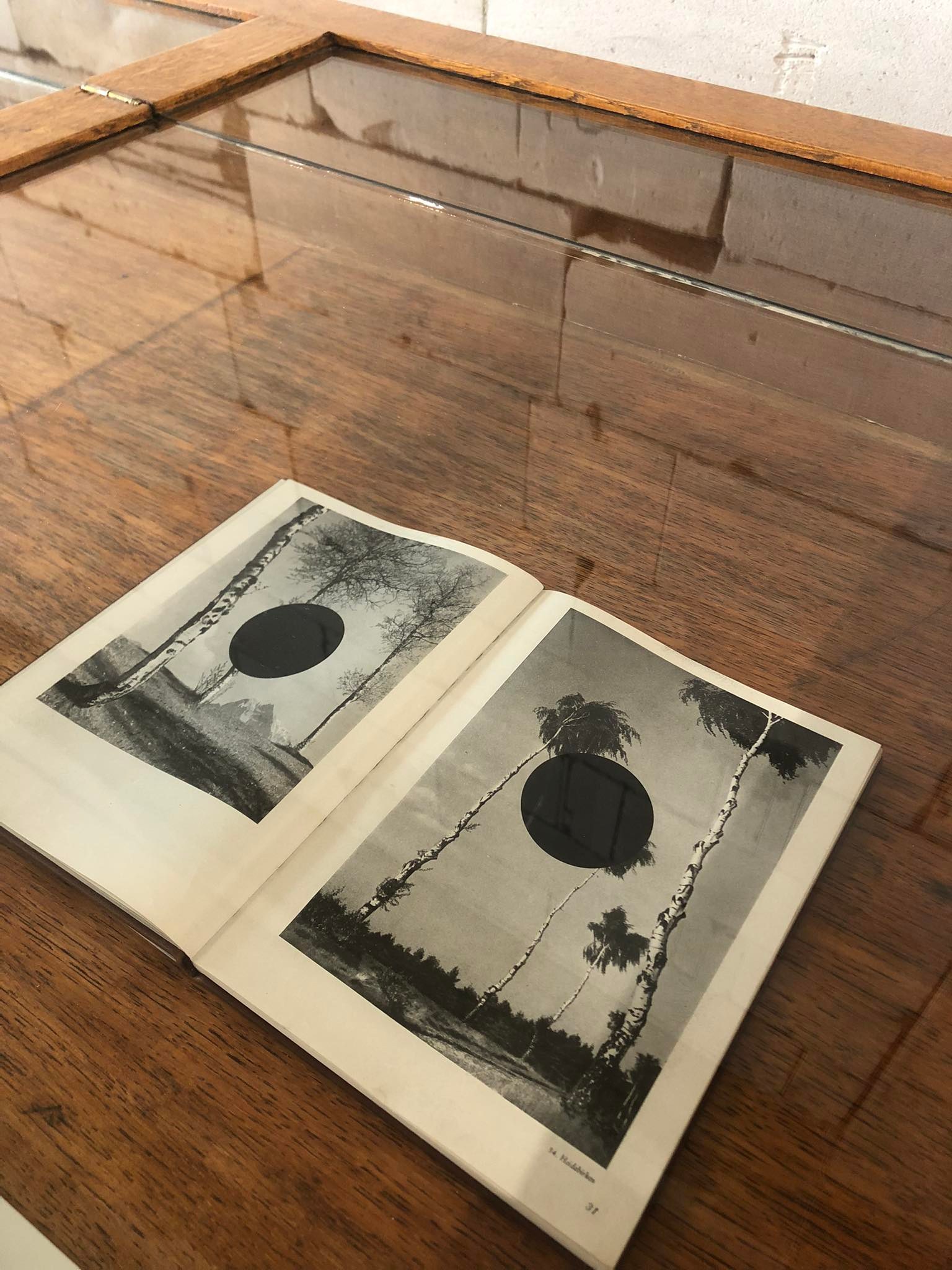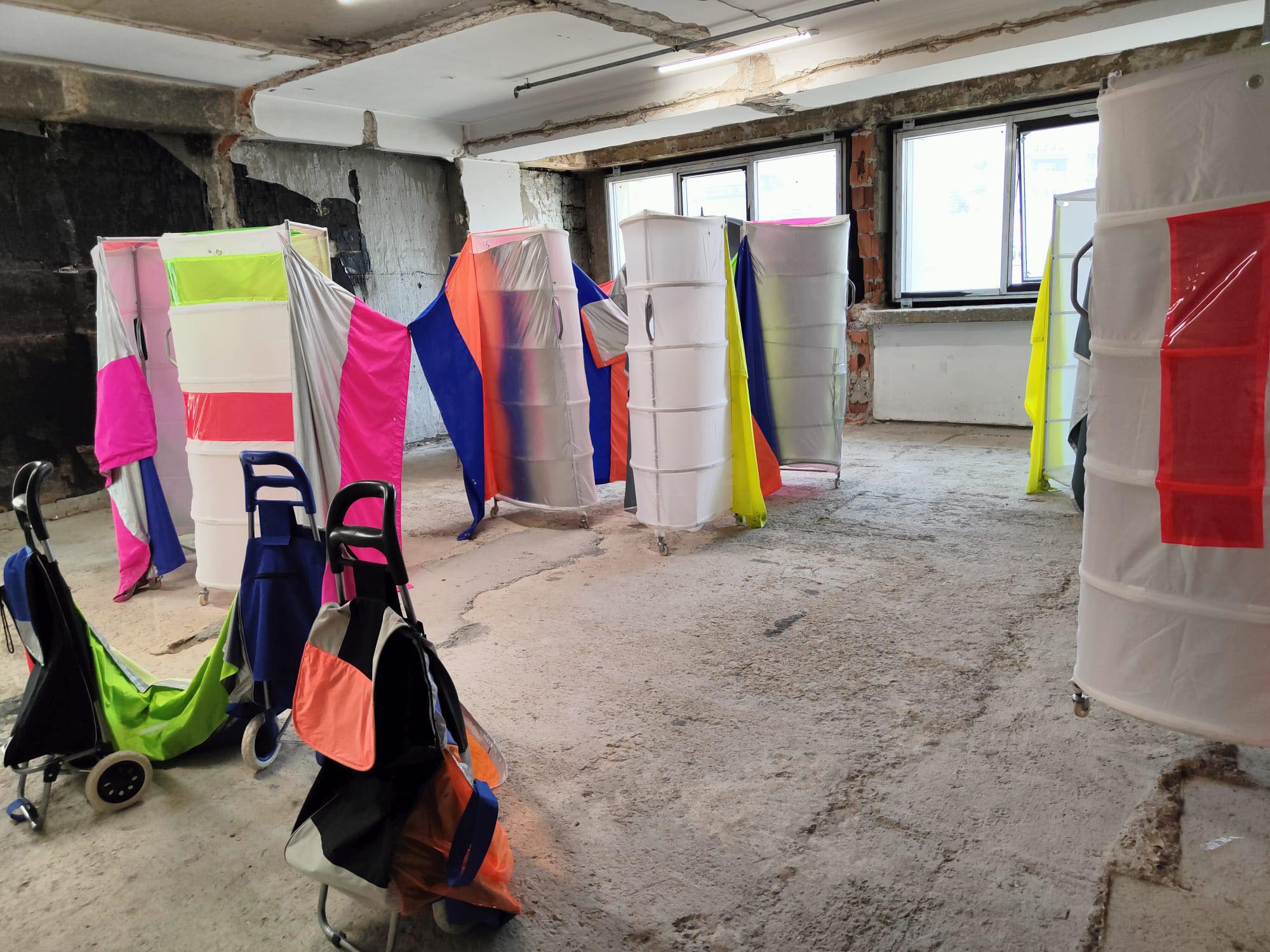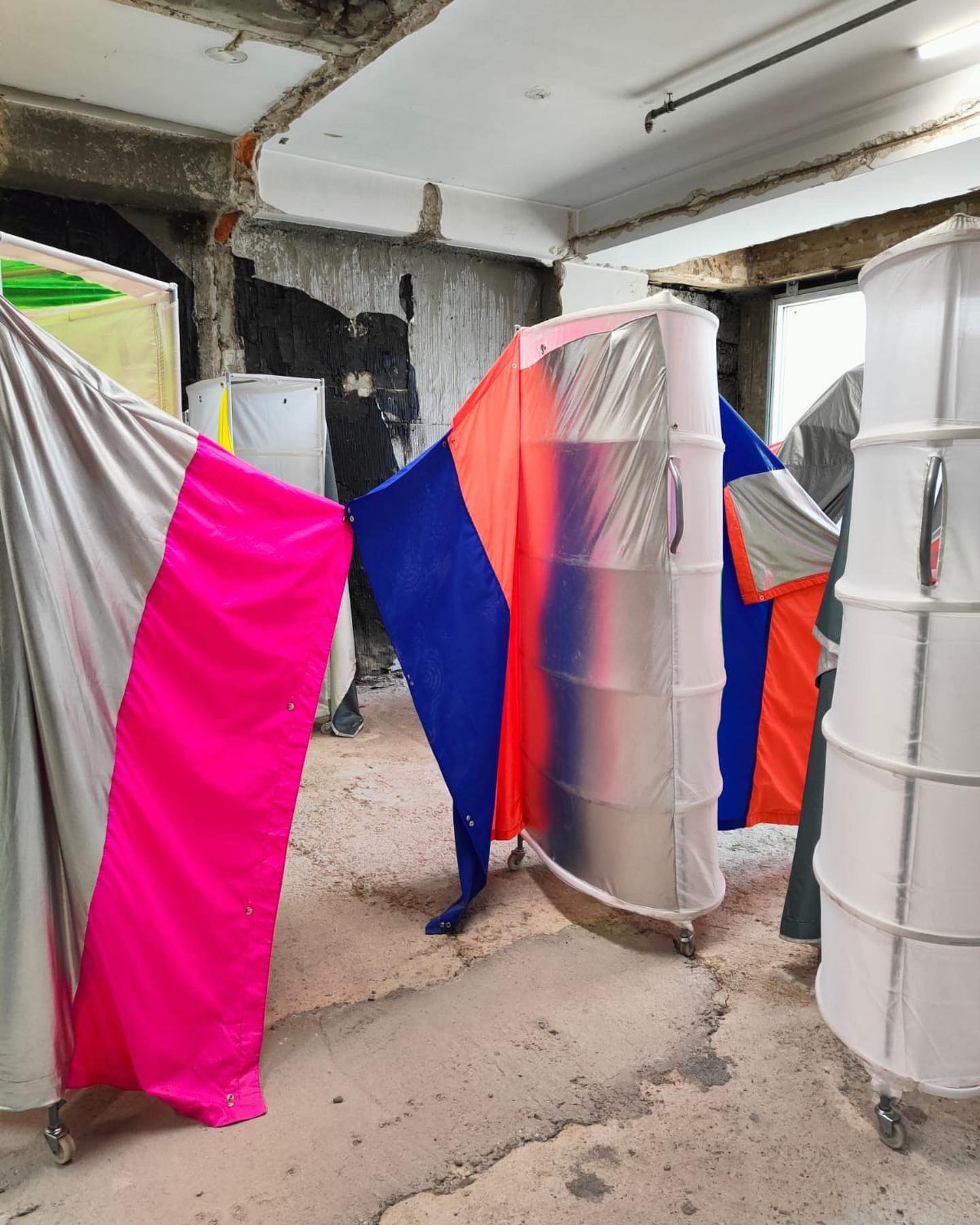July - October 2022
Manifesta in Pristina, Kosovo’s capital: here’s a selction of the works not to be missed!
We visited "It matters what worlds world worlds: how to tell stories otherwise", the fourteenth edition of Manifesta, opened in Pristina, the capital of Kosovo on July, 22. 100 artists from 30 countries present their works in 25 different places, between public and private spaces, including four main venues: the Museum of Kosovo, the Grand Hotel Prishtina, the National Library and the Palace of Youth and Sports. We made our list of the 10 works not to be missed:
1. Adrian Paci, “The wanderers” (2021) - Grand Hotel Prishtina
Adrian Paci has spent several years examining and re-examining what it means to wander the world, to leave and to return, what to let go and what to hold on to. Set in a rural Albania, "The Wanderers" contrasts two ways of walking, two ways of moving and being. On the one hand, the black and white video shows people and animals entering and leaving the frame in a casual way and in slow-motion, while the screen on the right offers a color video in which a procession of people takes place who purposely advance in direction of the viewer towards an unknown place. The tension between the two temporalities and imaginaries transcend the Albanian context of the video, highlighting the figure of the migrant and the philosophical imagery of the figure of the wayfarer.

2. Christian Nyampeta “Sometimes it was beautiful” - Kino Rinia
This abandoned and ghostly cultural site, saved from its transformation into another supermarket, IT is remembered as the place that brought action cinema and Hollywood romantic comedies to Pristina. Nyampeta's work is inspired by the Senegalese writer and director Ousmane Sembène who proposes an idea of cinema as a place of collective teaching and a vehicle for social intervention. The film brings together personalities such as politicians Yasser Arafat and Winnie Mandela; post-colonial scholar Leela Gandhi, playwright Wole Soyinka and director Andrei Tarkovsky watching and criticizing another film: the documentary shot by Swedish director Sven Nykvist in the Congo in 1949.

3. Elona Beqiraj, "poems from: und wir kamen jeden Sommer” (2019) - Grand Hotel Prishtina
"It doesn’t matter where you are from, Afghanistan, Turkey, Kurdistan” writes Elona Beqiraj referring to the community of people who have lived like her, part of the Kosovar diaspora in Germany, this sense of belonging and nostalgia towards what she calls "home". Poetic writing plays a crucial role in this attempt to piece together a fragmented identity between the native country and the new land.


4. Silvi Naci, “Actions that made my hands hurt (hand film)” (2019) - Grand Hotel Prishtina
At first sight Silvi Baci's minimal film recalls iconic works of the Sixties such as Yvonne Rainer's “Hand Movie” (1966); “Hand Catching Lead” by Richard Serra or “Hand Action” (1968) by Joseph Beuys to which there is certainly a reference. The artist herself is the performer of her video who with her hands performs a series of gestures related to making art, such as modelling, shaping and cutting out, interspersed with other gestures more evocative of a playful, sexual or violent interaction. The face is out of the frame to create this division between thinking and doing that many philosophers such as Friedrich Engel or Hannah Arendt see as the basis of work and a precondition of humanity.

5. Driton Selmani “Love letters”, (2018 - ongoing) - Grand Hotel Prishtina
The artist transfers phrases taken from the hundreds of pages of her diary onto plastic bags, such as "I Wish you were a plastic bag so that you could be eternal": these multitudes of phrases become love letters that underline how love could be found as much as on your shopping list, as well as in a poem, a letter, or a message on your phone. Addressing issues ranging from politics to ecology, from art to philosophy, the plastic love letters act as a diary that tells of daily desires and concerns.


6. Céline Baumann, “Queer nature”, 2017-ongoing - Grand Hotel Prishtina
What if plants were our oldest teachers? As Céline Bauman argues, what can we learn from them? What knowledge can they share with us? A key lesson to be learned from the botanical dimension would be the ubiquity of queerness. Wherever you look in nature, it's there. As part of an investigation into the diversity of gender expression and sexual behavior in plants, Baumann brings together specimens, illustrations, photos and stories. The research presents her herbarium and videos that go beyond the mere consideration that plants are often unisexual, bisexual, hermaphroditic or transgender, depending on age, time of day and environmental conditions. What Baumann tries to convey is that this knowledge can lead to a positive message regarding the creation of an environment that we share - whether at a domestic, urban, national level - and one that welcomes everyone.

7. Mette Sterre, “Seapussy Power Galore - Abcession (if you don’t know, you don’t grow)”, 2021/22 - Grand Hotel Prishtina
Mette Sterre's installation immerses us in an underwater world that breathes and writhes, retreats and flows again. The central figure in this seascape relates to the image of a mermaid that has been at the center of myths from different cultures since ancient times. As an hybrid figure, half human half animal, she is often described as a figure unable to live on land and in water, and for this reason Sterre adds in the narration the element linked to the air which allows her to breathe underwater as if a mermaid met a cyborg.


8. Daniel Gustav Cramer & Haris Epaminonda, “The infinite Library”, 2007-ongoing - Grand Hotel Prishtina
An archive of books that have been selected, collected, edited, retrieved and numbered by Daniel Gustav Cramer & Haris Epaminondas. Each book sees a fresh start with a new set of rules: while the properties and contents remain unchanged, the rest of the process is intuitive, associative and subjective. The artists conceive their work as an open and endless conversation made up of fragments, an endless reconfiguration of stories and ideas. As the authors write: “It's a liberating moment to open a book, written by an individual mind, and connect it with another, constructed by someone else”.

9. Astrit Ismaili, LYNX, (2022) - The National Gallery of Kosovo
Ismaili explores the possibilities of being and becoming within a performative context. Through alter egos, bodily extensions and wearable musical instruments, Ismaili achieves what he defines as "portals of transformation", combining bodies with metal sculptures and sounds. Original songs composed by the artist intersect with a series of fragments whose sources are related featuring art, popular culture, and politics. The themes addressed are those of tradition, violence, resistance, desire, fear and resilience. What remains of the performance, the instruments and sounds, have been transformed into an installation on display at the National Gallery of Kosovo.


10. Miryana Todorova, “expanded Objects for Shared Living” 2012-2015 - Grand Hotel Prishtina
Miryana Todor proposes expandable and modular structures that respond to an idea of migration as a condition - in a potentially utopian way - permanent and constant. Built with found objects such as portable wardrobes, suitcases, umbrellas and shopping trolleys, her creations push towards an idea of mutability, hybrids, extensions, clusters, skins, shells or dwellings that he uses to investigate collaborative actions and performative situations in public spaces that revolve around the idea of community.


visit Manifesta 14 website ︎︎︎